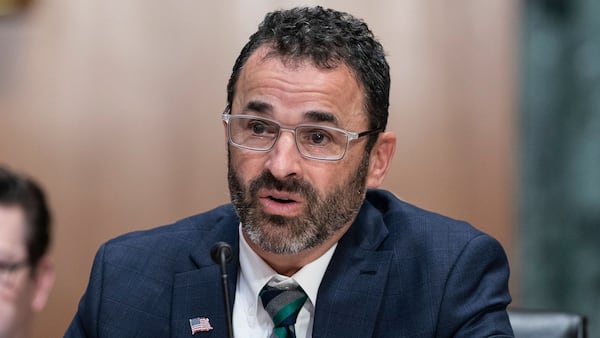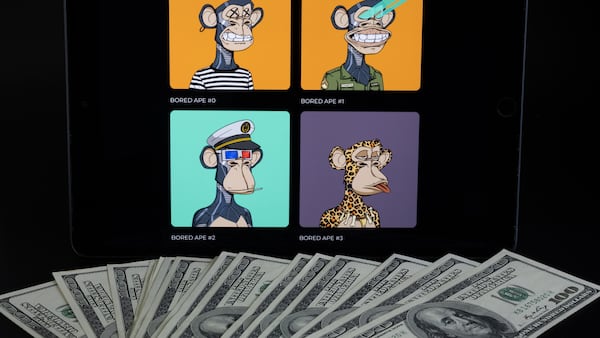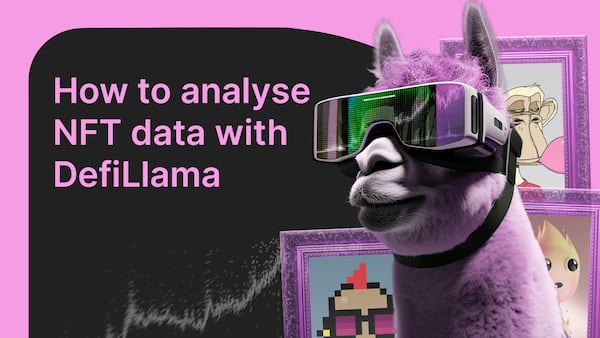- CEO Devin Finzer said OpenSea has received acquisition interest, but did not specify when and by whom.
- NFT player is struggling to find its footing after a rough couple of years.
- He said Blur has 'cut corners' on its way to market dominance.
Stung by the collapse of NFTs last year, OpenSea has had a hard time justifying its one-time $13.3 billion valuation.
Now, the non-fungible token marketplace is at the centre of another conversation — acquisitions.
Devin Finzer, OpenSea’s CEO and co-founder, told DL News this week that the company is keeping an open mind towards deals.
When asked if OpenSea was preparing to be acquired by another entity, he said, “the honest answer is that we take a pretty open-minded approach.”
”We think that if the right partnership comes along, then that’s something we should certainly consider,” adding, “we like to keep our options open.”
As to any previous acquisition interest or if anyone was interested in buying OpenSea today, he told DL News that OpenSea “certainly had interest,” but that was confidential.
When asked if this interest emerged last year or in 2022, Finzer said the “timeline was also confidential.”
In a follow-up email after the interview, Finzer said, “We have no plans to be acquired, nor are we looking for a suitor. If something came up, we’d keep an open mind, but that is pure conjecture.”
OpenSea vs Blur
At its peak, OpenSea accounted for about 90% of the NFT sector’s market share. Now, its monthly trading volume has dwindled to $171 million, a 96% plunge from January 2022, according to data from Dune Analytics.
And rival Blur, an NFT platform that went live in late 2022, has used airdrops of its token to leapfrog OpenSea and become the top marketplace.
Even though OpenSea still has more users than Blur, the latter’s daily trading volume of $18 million is about five times greater, according to Dune.
Finzer said he is unfazed by Blur’s performance and is focused on building a brand “that keeps users safe by delisting any fraudulent or problematic collections.”
“We’ve just noticed that Blur has sort of cut so many different corners when it comes to their approach to legal and regulatory,” he told DL News.
Blur did not respond to a request for comment.
Apes and penguins
The venture capitalists who backed OpenSea during NFT mania in 2021 may welcome a deal with crypto again on the upswing.
Andreessen Horowitz, Paradigm, Coatue Management, and tech-loving actor Ashton Kutcher all piled into fundraising rounds for OpenSea as it became a market for zeitgeisty NFT collections such as Bored Ape Yacht Club and Pudgy Penguins.
In November, Coatue slashed the valuation of its stake 90%, to $13 million, The Information reported.
Finzer was tight-lipped about long simmering rumours the company is keen on an initial public offering.
Looking for talent
Dealmakers have routinely gone shopping for bargains when bear markets shift to bull runs. And with crypto in the midst of such a transition, there may be some consolidation in the NFT market.
OpenSea has done its share of deals. In 2022, OpenSea acquired Gem, an NFT aggregator tool. It also bought Dharma, an early crypto wallet, and Mintdrop, which lets creators quickly bring their collections to market.
Finzer said one of the main things he looks for in an acquisition is talent.
“Some of the most passionate individuals are those who go to start their own project, those sort of entrepreneurial-minded people,” Finzer said. “Maybe they didn’t get the level of traction that they wanted in their own startup, and they’re looking for home elsewhere.”
Gucci gaga for collectables
From the outset, NFTs have made sense to a raft of content-based companies, including entertainment giants, professional sports leagues, museums, and fashion houses.
Finzer has spent the first weeks of 2024 dashing between meetings with executives at luxury brands to develop bespoke NFT projects and attending various Fashion Week events this week in Paris.
It’s not a new trend — Gucci and Louis Vuitton splashed into the crypto space in 2021. But Finzer said this year is different.
“I think now people are starting to get a deeper understanding of it,” he said. “I’ve been really impressed when I have these conversations, the level of sophistication of the folks running these projects and initiatives.”
Layoffs
He sees more promising trends on the uptick. Users are redeeming NFTs for physical goods, and brands are pushing into the metaverse — a loosely defined term referring to ever-online, digital environments — and “having pure digital experiences.”
The shift is most welcome after a tough period. Last fall, OpenSea laid off half its staff, Finzer confirmed to DL News.
“The restructuring that we did was really oriented around adjusting the team composition to be a much leaner, smaller team that can operate more nimbly in the market, as opposed to downsizing due to financial pressure,” Finzer said.
This article was updated on January 29 to include additional context.
Liam Kelly is DL News’ Berlin correspondent. Contact him at liam@dlnews.com.




